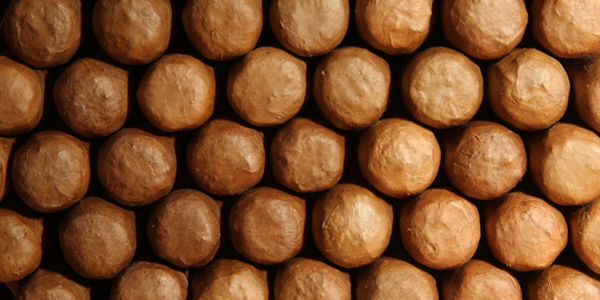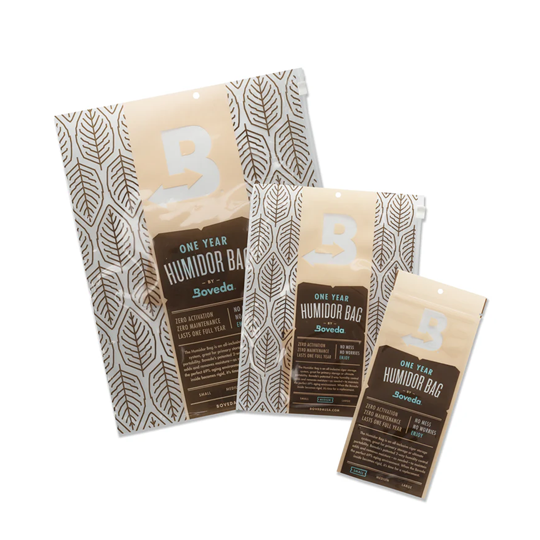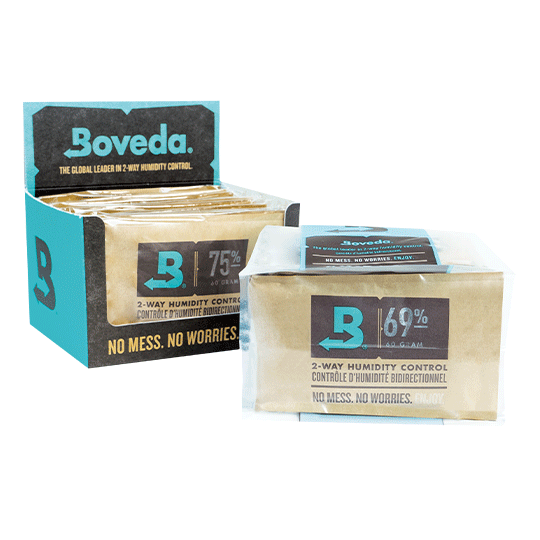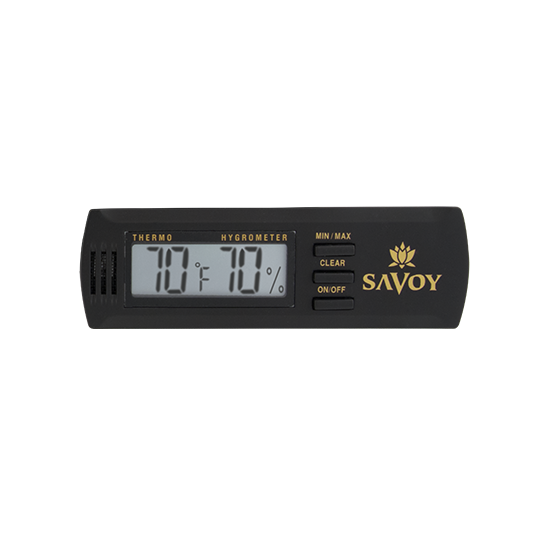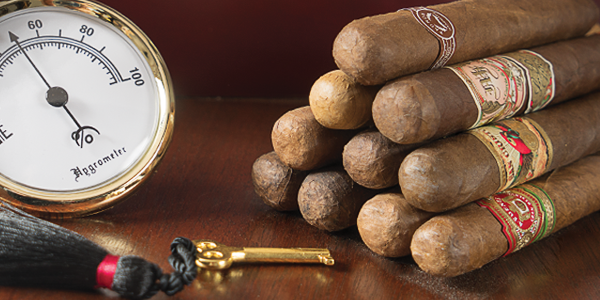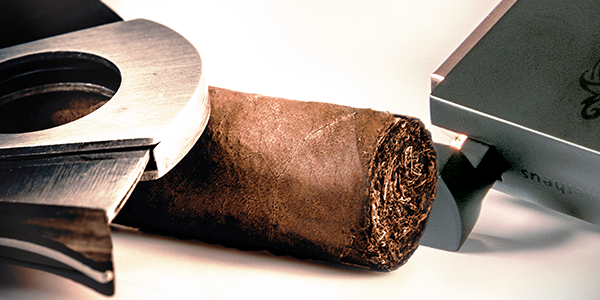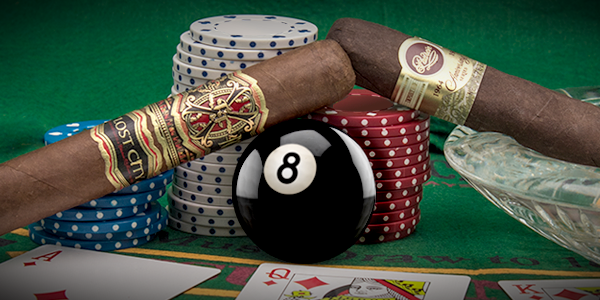How to Store Cigars and Keep Them Fresh Without a Humidor
You just received a box of cigars for your birthday, Christmas, or another special occasion, or maybe a pal handed you a handful of cigars as a thank you. You’ll want to make sure you store them correctly. Improper storage can lead to expired cigars. Keeping your cigars humidified is important, especially if you live in a cold-weather or desert climate where exposure to too much dry air can dry out your cigars in no time. The most common method for keeping your cigars fresh is to store them in a humidor. A humidor requires a small amount of regular maintenance, but it will keep your cigars in ideal shape for an extended period of time.
Perhaps your cigars were an unexpected gift, or you’re just getting into cigars and aren’t sure how serious you are about starting a cigar collection. Being on the fence about investing in a humidor doesn’t mean you don’t want your cigars to stay fresh.
Fortunately, there are several viable alternatives to humidors, which are cost effective and efficient. Before looking at options for cigar storage, it is important to understand the purpose of a humidor, and how ideal cigar storage conditions can be achieved without one.
Ideal Conditions for Cigars
Fluctuations in either humidity or temperature can adversely affect your cigars’ ability to burn correctly and taste good. Ideally, 70% humidity and 70 degrees are optimal conditions for cigar storage, but a general range between 65-72% humidity and 65-72 degrees is considered acceptable.
It’s a common misconception that softer, or “spongier” cigars are better, as they must be fresher, right? Wrong. Cigars that are too moist, or too soft, are prone to burning incorrectly and a host of other issues. In a perfect world, your cigars should exhibit a soft firmness that gives a little with a gentle squeeze between your fingers, but not to the extent that the wrapper leaf cracks. Also, keep in mind not all cigars are the same. Some blends are rolled more densely, or tightly, than others and will be more firm, while other brands may be softer to the touch.
Take notice of a cigar’s condition at the time of purchase. When you’re dealing with a reputable merchant, your cigars should be in optimal shape when you are buying them and that’s essentially the same condition you’ll want to maintain.
The Role of a Humidor
Humidors have a very simple purpose. They maintain stable humidity and temperature levels so your cigars will retain the integrity of taste and construction they were intended to deliver, even as they age.
A humidor is essentially a wooden box with a lid or door that seals and locks enough moisture in the interior to keep your cigars humidified. The moisture is traditionally supplied by a humidification unit, or reservoir. Most humidors are made of cedar or they are manufactured with a cedar lining on the inside, as cedar reacts agreeably with moisture and preserves the natural flavor cigars possess. The reservoir needs to be refilled periodically. Distilled water is best as tap water can create an unwanted mold condition. Most humidors are also outfitted with a hygrometer, which measures the humidity level so that you’ll know to add more water when the level drops beyond a certain point (usually into the lower 60% humidity range). If your humidor has a leaky seal, it’s tough to raise and maintain a consistent humidity level.
A good humidor preserves freshness, extends the longevity of your cigars, and promotes aging. Cigars, in some respects, are like wine. As they age, they get better, and may even peak over time. Humidors range in both price and quality. Inexpensive starter humidors can cost as little as $30, while top-shelf brands can go well into the thousands. Savoy is a great brand with models ranging from roughly $90 to just over $500 depending on the finish and size. While buying a humidor is a great commitment to developing a cigar collection, not everyone wants to make the investment right off the bat. Luckily, there are a number of simple and practical methods for storing your smokes without a humidor.
Plastic Wrapper: On or Off?
Should you keep the cellophane on your cigars or take it off when storing them? If you plan to age your cigars for a longer time (several weeks or months) before you smoke them, we generally recommend removing the cellophane. However, if you think you’ll be travelling with your cigars before you smoke them, it may be better to leave the cellophane on – that way the wrapper leaf is more protected while your cigars are in transit.
Keeping Cigars Fresh Without a Humidor
When you don’t have a humidor, you can store your cigars in a number of alternative environments, as long as you can seal them shut after you’ve introduced a humidification source. Simple solutions like a mason jar, a cooler, Tupperware, and even a Ziploc bag will do the trick.
Plastic Bag & Humidification Pack
The easiest and most basic way to store cigars is in a Boveda Humidor Bag or a Ziploc bag with a Boveda Pack inside. When you’re buying a handful of single cigars from a premium cigar shop, they are often placed in a Ziploc sleeve at the time of purchase. While the bag itself will help to preserve the initial freshness of your cigars, at least for the short term, a humidity source is still required if you plan to hang onto your cigars longer than a few days. Additionally, many cigar manufacturers package their cigars in individual cellophane sleeves before they go into the box. Cellophane is very common and poses a number of great benefits that protect cigars from damage during the shipping process and when they’re on display on store shelves, however, it does not preserve a cigar’s freshness or humidity. Cigars need access to a continual humidity source to stay fresh even if you leave the cellophane on.
You can use Boveda packs that fit into a Ziploc sleeve with your cigars to keep them fresh for several weeks or months. Humidity packs are engineered to release moisture through a porous skin at a predetermined RH level (i.e. 65%, 69%, or 72% relative humidity). These pouches self-regulate and require no maintenance. Just make sure you keep the bag zipped shut, or the humidity will quickly dissipate. Also, it’s best to store your cigars at room temperature. You don’t want to leave a sleeve of cigars sitting out in your car in the extremes of hot or cold weather for a long period. Humidity pouches work great in a Ziploc bag and are readily available at most fine tobacconists, as well as online. You can choose different sizes and different humidity levels based on how many cigars you’re storing and/or how moist you prefer to keep them.
Tupperware & Sponge Method
Making a Tupperware humidor is an accessible and affordable way to keep your cigars fresh. Simply wet a clean, unused kitchen sponge with distilled water and place it in a clean Tupperware container with your cigars and snap the lid on. You may want to snip the sponge in half, or only use a small section of it, as a whole sponge could produce too much humidity and over-humidify your cigars, especially if your Tupperware container is smaller. While monitoring the humidity level will be a less-exact science without a hygrometer, this simple and practical method is convenient. You can also use the humidity pouches, discussed above, as an alternative to a sponge.
The Coolerdor
Okay, you’ve made up your mind. You love cigars and simply can’t get your hands on enough of them. You’re so busy sampling, stockpiling, and collecting new brands, you can’t imagine finding a humidor cavernous enough to meet your needs, or you’ve already got three or four humidors stuffed to capacity down in your man cave and you simply need more space.
A coolerdor (also called “coolidor” in some circles) is the way to go, son. Take your run-of-the-mill, fire-engine-red cooler with its crisp white lid, normally destined for a day at the park, and let the conversion begin. The key here is that you want to make sure it’s CLEAN! Cigars are not unlike sponges and they will absorb whatever essence is near them. So, if your cooler still lingers of bratwurst from last week’s cookout, guess what your cigars will taste like? We actually recommend starting fresh with a new cooler that you can exclusively dedicate to your cigars.
Secondly, make sure the seal is in tip-top shape. If the lid is rickety or won’t fasten just right, your cooler is the perfect place for humidity to escape. A tight seal will keep your cigars fresh.
Thirdly, you need humidification. And, no, ice cubes won’t do. You do have options, though. We recommend picking up a humidification unit, or a few, depending on how many cigars you plan to stockpile. You can get the same kind of humidification device that you would use in a traditional humidor. One humidification unit will typically humidify around 30-40 cigars. Picking up a digital hygrometer is recommended, however. The more cigars you’re hoarding, the greater your investment, so you’ll want to protect them by getting an accurate reading of the humidity level.
If this sounds a bit too laborious, you can always stock your coolerdor with humidification pouches, as an alternative. Most pouches are calibrated for a specific number of cigars, so you’ll probably want the larger size pouches. But the good news is, humidification pouches are maintenance-free. When a pouch starts to firm up and lose its moisture (usually after 3-4 months), it’s time for replacement.
There are even devices to consider like the Cigar Oasis, which comes with its own reservoir and a fan that will circulate humidity. These devices are designed for larger humidors and can certainly accommodate a coolerdor. Although a Cigar Oasis represents an additional cost, it can be calibrated digitally to regulate humidity levels to your preference.
One final tip for a coolerdor: you may want to padlock the sucker if you’ve got some gluttonous pals with sticky fingers.
What Not To Do: Wooden Box Method
Most premium cigars are packaged in wooden boxes, some of which can be quite elaborate and highly decorative, however, the majority of them will not function as a humidor. Although a number of cigar boxes are aesthetically pleasing, most are not manufactured with a seal. As a result, humidity easily dissipates. A cigar box (or bundle) that is wrapped in an exterior layer of cellophane will assist in keeping your cigars fresh and protected for a short time. However, storing your cigars in the original box won’t keep your cigars fresh or humidified beyond a few days.
Additional Tips for Storage
Keeping cigars fresh is actually less work than watering a plant. Regardless of the method you choose, there are a few additional points worth knowing:
- Because cigars are like sponges, they absorb what is around them. This is especially important if you ever plan to keep any flavored cigars on hand. A single cigar that is infused with a cherry, vanilla, or coffee flavoring will impart that taste to all the other cigars that are stored in the same container. Advice: store flavored cigars separately, in their own Ziploc bag, Tupperware, or whatever method you decide on, so that your traditional, non-flavored cigars are not affected by them.
- Rotate your cigars. Essentially, you want to rotate your cigars on a regular basis, so that the same smokes aren’t always the closest to your humidification source.
- Cigars can be re-humidified. If you’re just reading this article for the first time, but you’ve had a box of cigars sitting under your bed for the past six months, know that they can be salvaged, depending on what state they are in. You’ll want to get the cigars into a sealed environment, like a Tupperware container or a Ziploc, with access to a humidity source. Keep in mind, re-humidifying cigars is a gradual process. You don’t want to blast your cigars with an aggressive humidity level. The wrappers can crack if you shock your cigars with too much moisture. Gradually introduce humidity over a period of time and your cigars can come back to life. There is a point of no return, where a cigar may get so dried out that the wrapper has begun to crumble and flake off like a potato chip. Luckily, re-humidifying cigars is a minimal investment, so it never hurts to try.
Buying a Humidor
You may have tried one or more of our suggestions for storing cigars without a humidor, but you’re not alone if buying a humidor is still a priority. Many aficionados still prefer a traditional cedar humidor for long-term aging. We’ve got plenty of advice on how to choose the best humidor to suit your needs. And you can shop dozens of quality humidors on the Holt’s site.

